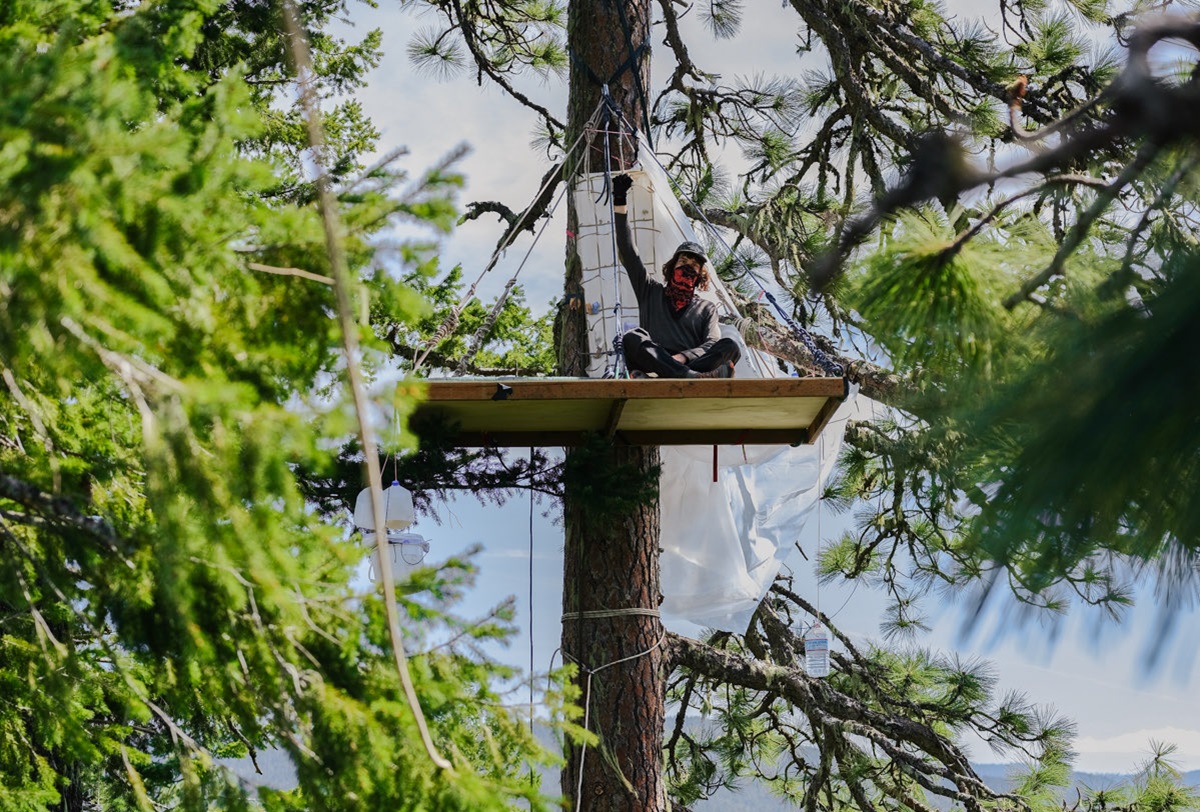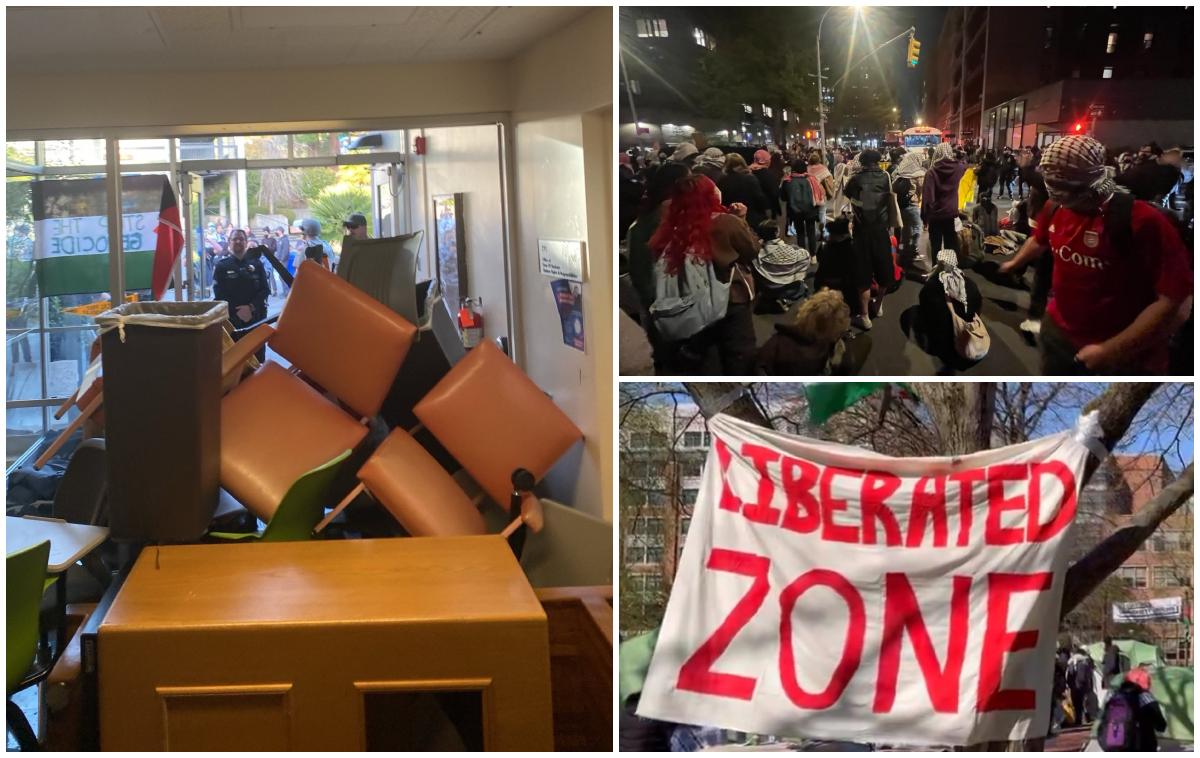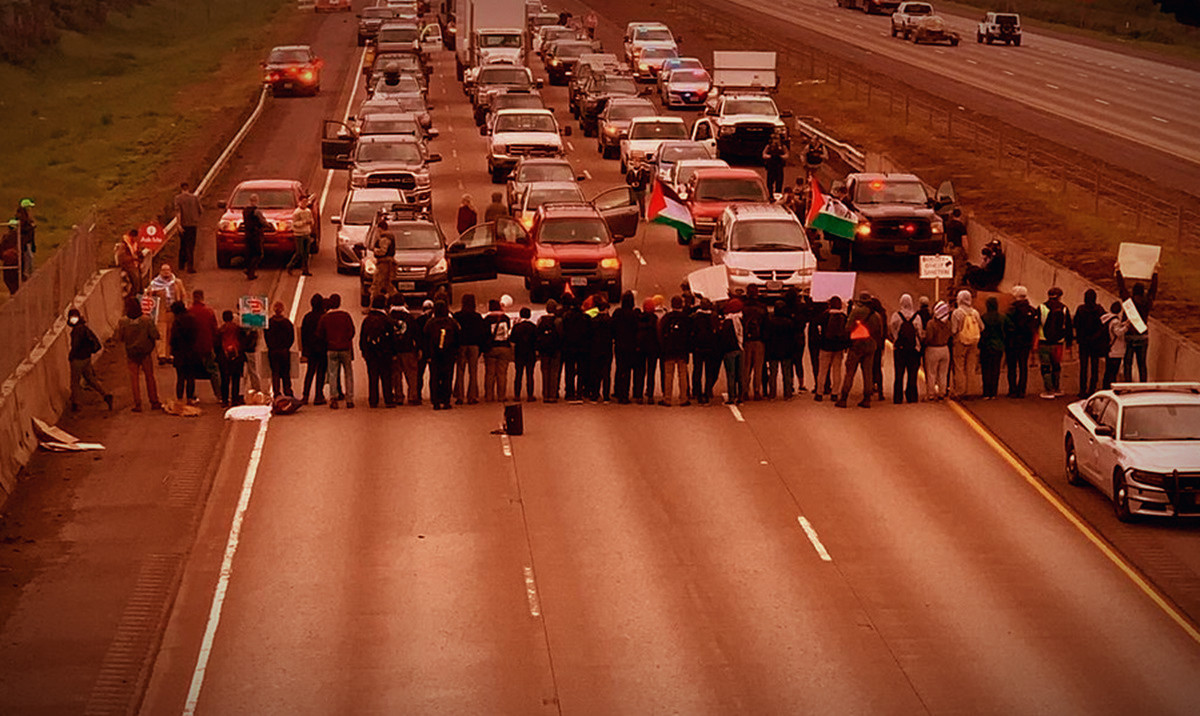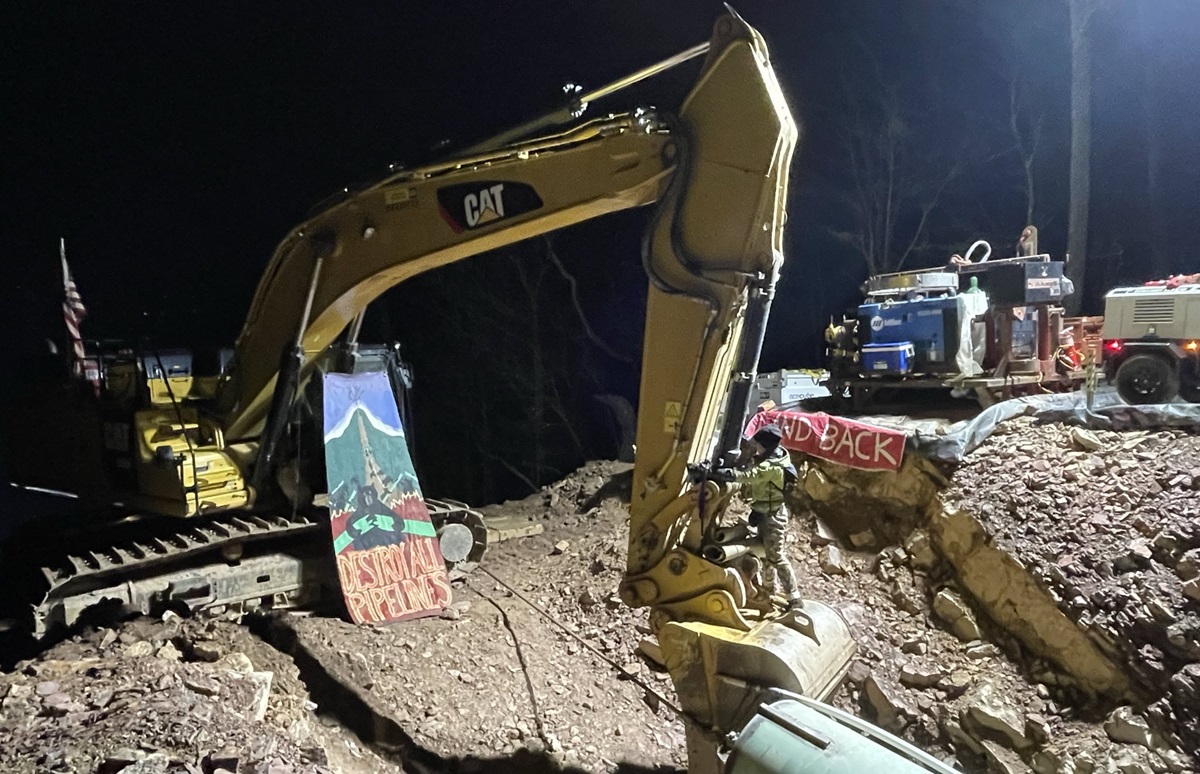Filed under: Indigenous, Interviews, Mexico, Political Prisoners
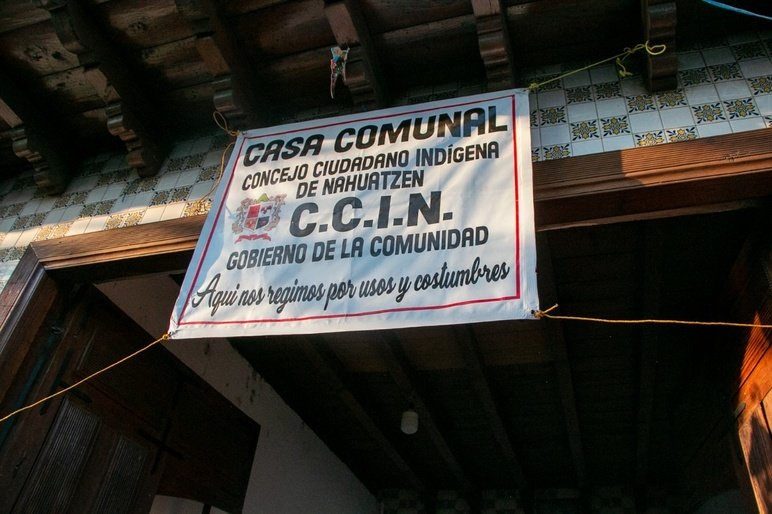
La versión original de esta entrevista en español puede encontrarse aquí.
The following is an interview with José Antonio Arreola, a former political prisoner released after serving more than three years of a seven-year sentence based on trumped-up charges. He is a member of the autonomous Indigenous Citizens’ Council of Nahuatzen, a P’urhépecha community in Michoacán. A previous interview with José Antonio can be read here.
After more than three years in prison, you won your freedom on February 9, when the Supreme Court ordered your immediate release. Congratulations on this victory. How are you doing? How does it feel to be back home?
I feel very happy, I feel very glad to now be with my children, with my wife, with all my family there in my community of Nahuatzen.
Yesterday, Mexico's Supreme Court ordered the immediate release of the three Indigenous political prisoners from Nahuatzen, Michoacán. Here's José Antonio Arreola walking out of prison yesterday afternoon. pic.twitter.com/Evibs8CPyd
— Scott Campbell (@incandesceinto) February 10, 2022
For those who are unfamiliar with your case, can you share some background on the struggle in Nahuatzen and the events that led to your political imprisonment?
The reason why I ended up in prison, being a political prisoner, is because of the following. In 2015, Nahuatzen rose up against the insecurity that the municipal government had been causing since its inception. An insecurity throughout the entire community. The residents, when they saw that organized crime came for some compañeros and took one of them, got together. We all gathered in the main square in our community and decided at that moment that the plan to follow was to meet with the entire municipal government in the municipal president’s office and to be able to ask for information about our compañero. The situation ended, thank God, with us recovering our compañero.
We called for a plebiscite through a statement read through the public address system in our community, where each person was asked to voluntarily come and sign sheets of paper with their name and a copy of their ID. I can tell you that nearly 5,000 signatures were collected out of the 5,000 photocopies. That is why, in 2017, we won a ruling from the Supreme Court, order 035, which resolved that we are an Indigenous community, that gave us our autonomy, our self-government, our self-determination. Subsequently, we filed another lawsuit to obtain the resources directed to our community, which was also granted to us by the Supreme Court through the Toluca regional court.
In 2018, we began to make use of the community’s resources. Support was provided to the nine neighborhoods farthest away from the center of our community, connecting them to the electrical grid. Support was also provided with installing concrete floors in houses, with metal sheets, with roofing, with blankets, with tools for the construction workers. Work was provided to one hundred people who safeguarded our security, under the name of ronda comunal (community patrol), known compañeros from our own community. As well, work was provided to eighty people who were the guardabosques (forest protectors), to ensure that trees weren’t cut down, to stop the widespread logging that was occurring at that time. Let me tell you, my friend, that we had 350 people, compañeros of ours, on the payroll, working. They paved four or five streets with hydraulic concrete. An ambulance was provided to give free medical transport to low-income people.
So that was, more than anything else, the reason why I and the other compañeros went to prison. Because the state government did not like the fact that we had supported the people. The Supreme Court gave us the opportunity and trust to have the community’s resources and to use them according to usos y costumbres, under an internal government, one that was our own. And the state government, the entire governmental apparatus of the state of Michoacán, did not accept it. So the persecution began, they took three of us prisoner, with us being from the communal council, the traditional authority.
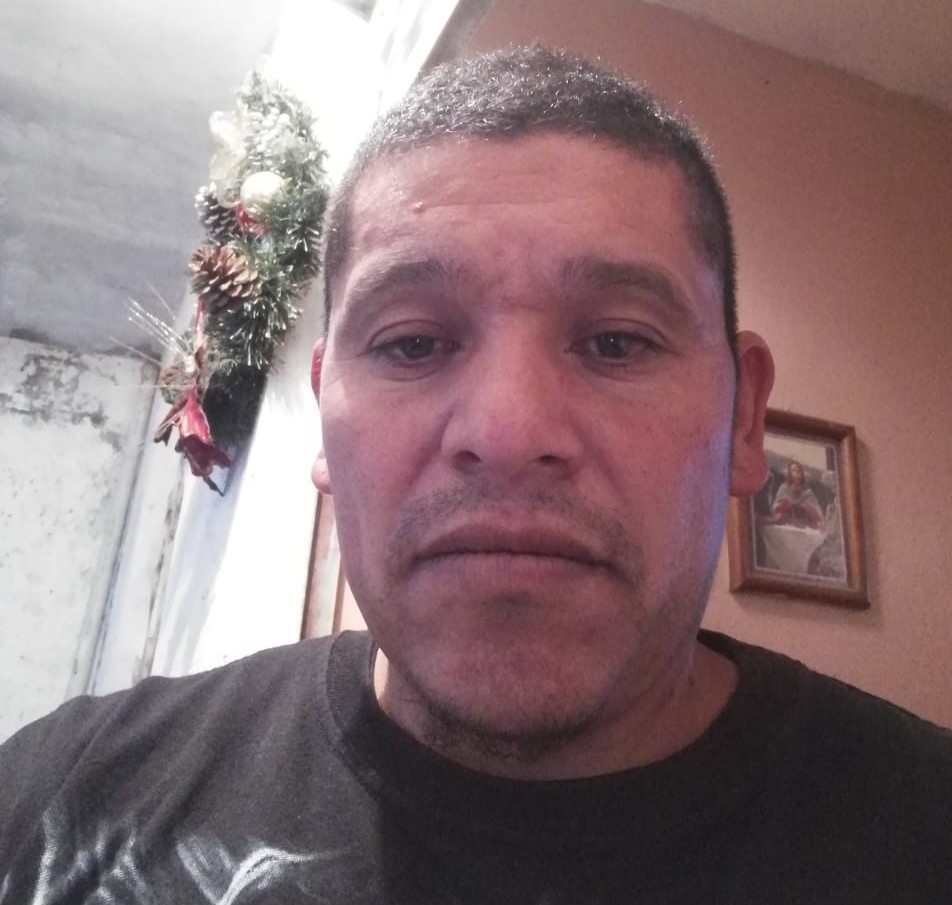
José Antonio Arreola Jiménez
You were one of three political prisoners. Also released on February 9 was José Luis Jiménez. However, another compañero, José Gerardo Talavera, remains locked up. Do you have details on the status of his case?
Two of us are with the traditional authority, José Luis and yours truly. The other compañero is a community member, but yes, he also got out along with us. He was part of MORENA, was on the state council for the state of Michoacán for the presidential elections. He had the willingness to bring two congresspeople to our community and the government looked upon it badly. [Then-governor] Silvano Aureoles Conejo looked down upon it, the political parties, PRI, PAN, PRD, looked down upon it. And because of that he was imprisoned as well. But yes, yes, whenever he has had the opportunity, he has supported our community, because he is originally from here in Nahuatzen. His whole family is from here in Nahuatzen. He studied in Morelia and received a degree in economics. So, that is what the government was able to do, and that is why they took him prisoner, along with us.
What is the situation like in Nahuatzen at the moment?
The situation at this moment in Nahuatzen is very sad and very regrettable. Organized crime is inside our community, the insecurity is really palpable, the municipal government that has been imposed with 435 votes is part of the same problem. Let me tell you that we have four mountains, four hills, four forests under protection. In 2018, we had the will to plant more than 80,000 pine trees, of which it is very sad to return after three years and three months to our town and see that there is total devastation. The municipal government is giving permission to cut down the pines.
You’re a member of the autonomous Indigenous Citizens’ Council of Nahuatzen (CCIN) and the representative of the first neighborhood. How did the Council form and how does it function?
The Council was formed to be able to have self-government, to be able to enact the ruling of self-determination and to have autonomy. Autonomy is the separation of our government from the state government, from the municipal government. We, as a self-government, in this case are part of the Mexican state. The Mexican state is the one that protects us and intervened for us. Yes, I am a council member from the first neighborhood, because that is where I have your humble house when you want to come and visit me, so I proudly represent the first neighborhood. The Council was formed to be the government that holds the reins of our autonomous community.
What does your work as a representative entail? What is that experience like for you?
The work consists of, I, in this case, am in charge of security. My job is to provide security to the entire community through the community patrol. It is to guard the entrances, the four entrances we have in our town and day and night to provide security to the people who are inside the community, along with other compañeros. We also provide security to the schools, to the different schools, to go and check that there are no incidents, that the youth enter and leave school and go directly to their homes. That there are no people posing as students or teachers and bringing drugs or wine or anything that could affect the youth.
Also, within our community, it’s going on rounds, patrols, to be patrolling the community on foot and in cars. That the people see us walking on the street, that the people, the youth, the women, the elderly have the trust to ask us for help or in the case of any unknown situation that happens in our community, that we are notified. That they have the confidence in seeing that we ourselves are the ones who are providing security to our people. That is the difference between a municipal government and a council, that is the job that I have.
Additionally, as part of the Council as well, I have to represent my community in front of the state. We have to ask for projects, we have to ask for support for the people, for the whole community. Our job is to ensure that culture, education, and health care are provided according to the needs of our community. That we have everything, all the basic services functioning in such a way that the difference between political parties and the communal government can be seen.
For me it is a great and beautiful experience, because I had never participated in this type of situation before. We are a low-income family. I had to leave my family, my wife and my children, to migrate to the United States. I saw in the United States a different life, a very different culture, very distinct between us and them. When I returned, there was already organized crime here in the community of Nahuatzen. There were kidnappings, forced payments, quotas, extorsion. They were extorting the carpenters, the storekeepers, the grocers, it was unbearable, the people were already fed up, the situation was very, very terrible.
So, I entered this situation for my family, because I did not want my family to suffer, or for my children to suffer any situation that we could not control. For me, it has also been a very good experience, very nice, I repeat, because I have had the will and I have been able to help a lot of people through the resources we received in 2018, which for me was four months of working with the resources, then I was taken prisoner. But at that moment, in those days, in that time that we were handling the resources, for me it was very beautiful, very pleasant to be able to help many people. I feel proud to have done that because we didn’t seek out our own benefit. We sought to benefit the community, socially and communally, because that is our movement, that is our flag, to learn to serve by serving.
In this case, we knew beforehand that the people are in charge. We have to obey the people. So, for me, it has been a very pleasant experience. I would also like to tell you that spending three years and three months in prison, I also learned many things. I learned how to check young people; in what part of their clothes they hide inappropriate things. I learned to look at my community in a different way, to be able to provide them with better security, to be able to talk with our community, with our people, to be a better town. So, for me, the experience has been very good.
Right now in Nahuatzen there is the state-imposed municipal government and the autonomous CCIN. How does having two very different forms of governance in the same community play out on the ground and in daily life?
Yes, right now, as I mentioned before, there is the municipal government, but now that we have returned, we have had five meetings with the state government, so we are on the right track. There is only one more requirement they are asking of us, which is a general assembly in our town using usos y costumbres, in order for the resources that were taken from us to be returned. For me, this is very good, and for the whole community, because, God willing, I believe that within a month we will be talking about the community starting to receive its benefits.
We will once again have a communal patrol, we will once again have forest protectors, we will once again have education, culture, more than anything else, the support to be able to do and carry all this out and to also be able to give employment to some of our compañeros. And, above all, to try to fix and address the devastation in the hills, and above all, to also address the landfill, because we may end up having not a pandemic but pollution at the municipal level. This situation is very regrettable and very sad.
Can you explain the importance of autonomy for Nahuatzen? How does it differ from the municipal government?
As I mentioned, autonomy is separation from the state, from the municipal government. Now, the difference is that there is no self-determination. Autonomy means that we can choose how we are going to spend our resources. In this case, if we believe that we need a school, if we hold a general assembly and the community is in agreement, raising their hands in favor of the proposal, then we build the school. If we need security, we also address it. The other thing is self-government, that we ourselves govern ourselves, that we ourselves protect ourselves, that security is a fundamental part, but is made up entirely of neighbors, cousins, brothers, from the entire community. They are people we know; they are not outsiders or strangers; we are part of our town.
So, yes, there is a very big and complete difference, because the municipal government is based on a municipal president, only one person decides how to spend the money. Unfortunately, in our community, all the municipal governments that we have had for more than seventy years have enriched themselves. They have all spent the money on cars, on houses, on women, on wine, but not on projects in the community.
Autonomy, the self-determination of our people, is very different, because everything is with the people. Everything has to be done through general assemblies, where it is decided, the people decide, how to govern themselves, how to educate themselves, how to socialize. In this case, how, socially, we can share projects, proposals, ideas, with the same community. A municipal government doesn’t do that, it will never do that, because it is based on the president and he is the one who commands and the rest have to obey. And for us, under autonomy, the people are in charge, the government is the one that must obey.
What challenges or work remains to be done in Nahuatzen? What are you focused on now that you’re free?
I’ll tell you that we are focused, especially me, on security. There is a lot of insecurity in our town. There is a lot of logging and too much devastation, as I said. I think it is very sad to realize, but in the past three years of the municipal government, we’ve fallen far. From 2015 to 2018, and it’s not bragging, but we became the second safest community in the nation, at the level of the republic, not at the state level.
I can tell you that nothing is left of that but memories, because right now there is a lot of organized crime here, a lot of people who are cutting down and destroying our forests to plant avocado trees. All of this is due to the fact that the municipal government has withdrawn resources from our community. So, we are focused on security. I believe that, if we have good security, the rest falls into place. We are convinced, I am convinced that we have to have security first, to provide security to our population in order to be able to be well.
What are your hopes for the future of Nahuatzen?
I hope, first of all, God willing, that within a month we will begin to work with the resources and be able to help hundreds, thousands of people. And in the future, I see a different Nahuatzen, a Nahuatzen, a magical town, a town of Nahuatzen with a university, with schools, with more educated teachers, one can say, because here there are principals who allow teachers to arrive drunk to teach, just because they are their compadres, their friends. We have a very bad culture around education, and we have to change all that.
I see a Nahuatzen in the future with a hospital full of equipment with all its doctors and specialists so that we can continue to be well in terms of health. In terms of education, in terms of culture, we intend to have and recover the mother tongue which is the Purépecha language. We want, and we have faith, that three years from now, we will see the difference between an autonomous government and a municipal government. We have great faith that our young people will be able to go out on the streets with the security that nothing will happen to them in our community. We hope that, in the future, our communal patrol will be able to deal with people who misbehave or put them in prison without the need to call the prosecutor’s office, who sets them free when they are caught, in this case the criminals.
We hope to have many things, we have many projects in mind. We want to have enough water to have irrigated fields, fruit trees, corn, both irrigated and seasonal. To be able to have our forests one hundred percent restored with all that it implies. In handling the distribution of water, we can bring great satisfaction to Nahuatzen. That is how I see a united Nahuatzen, a Nahuatzen free of all these issues, of all organized crime, and of all insecurity.
How can those interested in the struggle for autonomy in Nahuatzen get information and stay up to date?
Previously, we were on Facebook where a compañera, every day, every action that the Nahuatzen Council took, uploaded it to the social networks to provide information on how we are working, what was moving forward. I think that now with the technology we have, we will do it again. We even plan to create a communal radio station where we can receive calls from you, friends, from different parts, where we can also share our ideals with some other communities, where we can give some proposals, some points of view that we can exchange with other places, with other states.
I believe that we all deserve to be free, we all deserve to have a society free of drug addiction, alcoholism and insecurity. I know it is very difficult, but I know that I also have faith that it can be done if people really unite. Because power is in the unity of the people. That is how one will soon be able to see the progress, all the things we will be doing. I repeat, I am going to try to send some videos, some photos of the hill and the landfill, so that also through this interview, which I hope will have a strong impact like the previous one, the state government, the Mexican federal government, can see that Nahuatzen is submerged in insecurity, in total sadness because of the municipal government and the government of Silvano Aureoles.
Through the state government we can implement temporary employment for our landfill, to reforest our four forests that we have under protection. Compañero, I am very happy that we can communicate with you and that through your web pages or the way in which you disseminate it, we may have an even more favorable response from the government, either from the state or the federal government, or both. I would like to ask you, more than anything else, to amplify this interview and I am willing to do interviews whenever you want, because for me, this is something very important, that we make known how our community is now, and how it is going to move forward. And for us it is going to give us a lot of joy that our community is moving forward for the better and is not being held back. Thank you in advance, my friend, for your time.


